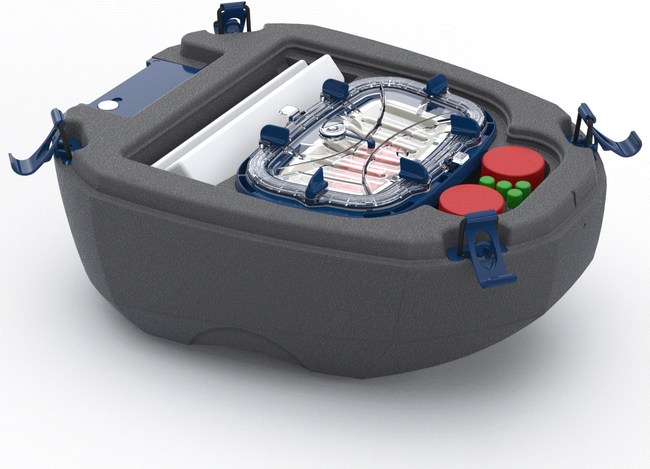
VIVIAN KIDNEY device is developed as a new generation disposable organ preservation device for kidney and available for hospital use.
Transplant Biomedicals has designed the device to integrate the Hypothermic Ultrasound Preservation Technology (HUPT), a revolutionary proprietary and patented technology that helps preservation of organs during ex-vivo conditions.
Transplant Biomedicals CEO Joan Salgado said: “We believe that VIVIAN is a platform with the profile of a true game changer in organ, tissue and cells preservation market.
“These interim results in kidney transplantation represent a boost to our mission of improving the outcomes in solid organ transplantation and to continue and accelerate further our development activities in cell and tissue preservation.”
Transplant Biomedicals said that the clinical study EMERGE enrolled 32 patients who received a kidney from either brain death standard and extended criteria donors (DBD; SCD+ECD) or cardiac arrest donors (DCD MIII).
The results demonstrated an effective safety profile with no events related with the device and no organs being discarded.
Hospital Clinic de Barcelona renal transplant unit head and principal investigator of the study Fritz Diekmann said: “A 19% rate of DGF, is a remarkable achievement, in particular if we take into consideration the high proportion of DCD (61%) and the mean age (over 60-years) of the donor/recipient population included in the EMERGE study.”
The company said that its VIVIAN KIDNEY is associated with a low rate of delayed graft function (DGF) at 30-days with a short duration of DGF and length of hospitalization.
In addition, the primary performance endpoint of the study, the proportion of recipients with DGF was 19%, while in DBD subgroup the rate of DGF was 25% and in DCD the rate of DGF was 16%, and no recipient was suffered from a graft primary non-function (PNF).
Transplant Biomedicals co-founder and CSO Carmen Peralta said: “These results are in full alignment with our pre-clinical experience and fully support the idea that our disrupting platform that combines hypothermia and low frequency/energy ultrasounds can play a relevant role in addressing the current unmet medical needs not covered by the standard-of-care in solid organ preservation, static cold storage.”VIVIAN






